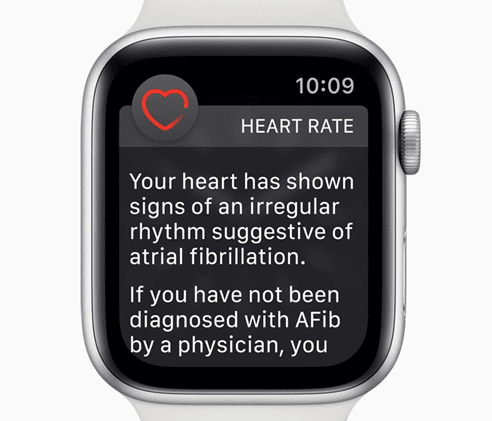Many consider the Apple Watch’s ECG feature to be a very useful one. It is the first consumer-focused ECG available without a prescription, and it makes the Apple Watch more than just a fitness band. Although it has already been credited with saving a life, some doctors feel it may do more harm than good.
A waste of time and resources?
The Verge ran some experiments on the Apple Watch’s ECG feature at the University of California, San Francisco (UCSF). Afterward, two doctors highlighted some of their concerns about it, and The Verge showed their reactions in a YouTube video. The doctors believe more data is not always better and could even cause problems for healthy people and the healthcare system in general as well.
Dr. Gregory Marcus at UCSF finds the ECG feature “fascinating” as a researcher, but as a doctor, he is concerned about its use. Lab-based ECGs are more detailed and accurate, but the Apple Watch’s ECG feature only looks for atrial fibrillation, a type of irregular heart rhythm.
Dr. Marcus explained that there are many other types of irregular heart rhythms which are harmless, and the Apple Watch could alert users of these irregular heart rhythms as well, making even healthy people unnecessarily worried about their health. This could convince these healthy people to see a doctor, wasting time and resources which could have been used to treat really sick patients. Dr. Marcus is also concerned that most Apple Watch users are younger and healthier, while people who could really benefit from the ECG feature probably don’t have one.
“If someone is younger than age 65, they don’t have high blood pressure, diabetes, they’ve never had a stroke, they don’t have heart failure, they don’t have other problems with their arteries, in general I would say ignore it [Apple Watch ECG] in the absence of symptoms,” Dr. Marcus advises.
Not needed for healthy people
In addition to these concerns, there is also a question about whether ECG readings are even needed for healthy people. Dr. Seth Landerfeld, a professor of medicine at the University of Alabama at Birmingham, believes the benefits of ECG screening for healthy individuals do not outweigh its risks.
Dr. Landerfeld is also a member of the U.S. Preventative Medicine Task Force, which evaluates the benefits and risks of some health screening systems. The same task force evaluated ECG screenings for healthy individuals and didn’t find any evidence of benefits outweighing the damage. In fact, the task force recommended that healthy people not even use ECG readers.
“There’s no evidence there that the benefits outweigh the harms [sic], and so therefore we recommend against using the ECG screening for people at low-risk for cardiovascular disease,” the task force concluded. Landerfeld believes ECGs are more helpful for people who already have a history of cardiovascular problems.
The Apple Watch’s ECG feature saved a life
Whatever doctors might say, one fact which can’t be ignored is that the Apple Watch’s ECG feature has already been credited with saving the life of a 46-year-old man in Richmond, Va. Ed Dentel was trying it out, and to his surprise, the results of the screening were not as he had expected. The device alerted him to his irregular heart beat.
“The application on the launch sounded off right away with atrial fibrillation – not something I’ve ever heard of, but since I’m in pretty decent health and never had a problem before, I didn’t give it much thought,” he told ABC News.
He ran the same test the next morning, but the results were the same. He then restarted the device, but the ECG results were similar. Dentel then decided to visit his doctor, who then confirmed the findings of the Apple Watch’s ECG feature.
“I was dealing with a case of atrial fibrillation that I never knew I had and probably wouldn’t have known anytime soon,” he told.
The Apple Watch Series 4 uses an electrical heart sensor to record the wearer’s heartbeat and heart rhythm and then checks the recordings for atrial fibrillation (AFib). Although the device does not indicate if a user is about to have a heart attack, it does help to detect early signs of heart disease.












